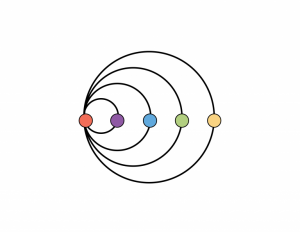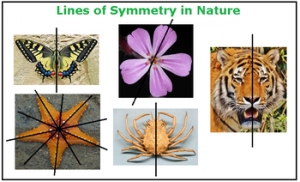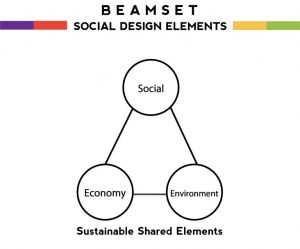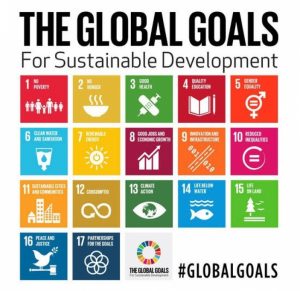The Symmetry of Beamset Social Design
Symmetry in design creates a balance, which in turn creates harmony, equality, order, and pleasing results. Beamset applies multiple types of symmetry to create profound symmetrical patterns that people can relate to, efficiently organize and easily understand.
- ◼ Symmetry in Existence
- ◼ Symmetry in Equality

PART I: Symmetry in Existence
Overview
- ◼ The Symmetry of Beamset
- ▪ Beamset’s Universal Symbol
- ▪ Beamset’s Global Orb Symbol
- ◼ Symbolic of Line (Bilateral) Symmetry and Diversity in Nature
- ◼ Symbolic of Symmetry in Nature
- ◼ Symbolic of Symmetry in Water
- ▪ Reflection Symmetry
- ▪ Molecular Symmetry
- ◼ Symbolic of the Multiple Associations of Symmetry
- ▪ Line, Bilateral or Spherical Symmetry
- ▪ Reflection, Mirror or Scale Symmetry
- ▪ Rotational Symmetry
PART II: Symmetry in Equality
Overview
- ◼ Symbolic of Symmetry of the Sun-Earth-Moon
- ▪ The Sun
- ▪ The Earth
- ▪ The Moon
- ◼ Symbolic of Symmetrical Equalization
- ◼ Symbolic of the Ten (10) Eclipses
- ◼ Symbolic of the UN and Equality (SDG-10)
- ◼ Symbolic of Symmetry in Equality as a Global Core Value
Part I: Symmetry in Existence
- ◼ The Symmetry of Beamset
Symmetry is an intrinsic part of geometry, shapes, and nature. Beamset applies multiple types of symmetry to create profound symmetrical patterns that people can relate to, efficiently organize and conceptually understand

- ◼ Beamset’s Universal Symbol
Beamset brings aesthetically pleasing design to the society for the creation and/or study of universal human-centered Social Design that can impact factors and change the design of the solution.

(Symmetrical in Black-and-White)
- ▪ Beamset’s Global Orb Symbol
Beamset’s Global Orb Symbol is symbolic of bilateral equality in symmetry and social diversity.

(Symmetrical in Black-and-White)
- ◼ Symbolic of Line (Bilateral) Symmetry and Diversity in Nature
Bilateral equality in symmetry and diversity of life began on Earth about 3.8 billion years ago. Earth contains a massive level of biodiversity. Currently, there are an estimated 8 to 10 million species on the planet. Only 1.2 million of those species have been successfully identified, which means that around 86% of all species on land and 91% of those in the seas have yet to be discovered, described and catalogued. (Source: https://www.sciencedaily.com/releases/2011/08/110823180459.htm)
- ◼ Symbolic of Symmetry in Nature
Everything and everywhere in nature, we see lines of symmetry. It is in the wings of butterflies, the petals of flowers, and human eyes, ears, and limbs.
The anatomy of most animals, including humans, exhibit a type of symmetry called mirror symmetry. It is also called bilateral or line symmetry. That means they can be drawn as a fold and one fold will mirror the other side as a plane.

- ◼ Symbolic of Symmetry in Water
- ▪ Reflection Symmetry in Water
Body of water is a prominent part of nature. One quality of water is how it can mirror or reflect nature and the surrounding environment, such as, a mountain visible in a lake.

- ▪ Molecular Symmetry in Water
Water (H2O) is also a molecular symmetry at its molecular level. At the molecular level, molecules are groups according to their symmetry.


- ◼ The Multiple Associations of Symmetry

- ▪ Rotational Symmetry
In rotation, the object is identical when it is rotated. Rotational symmetry is achieved when all elements of an image or object rotate around a common center, and it can occur at any angle or frequency. A rotating circle or wheel that is identical in all directions conveys rotational symmetry.
- ▪ Reflection, Mirror or Scale Symmetry
Reflection symmetry, also known as mirror symmetry, or mirror-image symmetry, is when symmetry occurs concerning reflection. That means the figure does not change but is reflected and seen as doubled. If an object is expanded or reduced in size, the new scaled object has the same appearance as the original.
- ▪ Line, Bilateral or Spherical Symmetry
As we have seen from several examples, this is when the symmetry runs across an axis. And the object looks roughly the same on both sides of the axis. In two-dimension (2D) designs, there must be a line or axis of symmetry. The line of symmetry splits the shape in half, and those halves should be identical.
Part II: Symmetry in Equality
- ◼ Symbolic of Symmetry of the Sun-Earth-Moon
Symmetry is an intrinsic part of geometry, shapes, and nature. Beamset applies multiple types of symmetry to create profound symmetrical patterns that people can relate to, efficiently organize and conceptually understand

- ▪ The Sun
A total eclipse occurs when the moon passes between the sun and earth. The sun’s disk is entirely obscured and invisible from the earth’s sky. The sun’s diameter is about 400 times larger than the moon’s diameter, but symmetrically about 400 times farther away.
- ▪ The Earth
Around 4.54 billion years ago, Earth was formed from clouds of dust and gas orbiting the sun. 4.5 billion years ago, the moon was formed after an object collided with young Earth
Earth is the only planet in the solar system with equality in its total solar eclipses. Total solar eclipses are rare natural phenomena that recur at any given location only once every 360 to 410 years.
- ▪ The Moon
Earth is the only planet in the solar system with equality in its total solar eclipses. Total solar eclipses are rare natural phenomena that recur at any given location only once every 360 to 410 years.

- ◼ Symbolic of Ten (10) Total Eclipses
In the 21st Century, it is reported that there will be ten (10) total solar eclipses in the USA. The dates of the total ecliptic symmetrical equalizations are:
- (1) August 21, 2017
- (2) April 08, 2024
- (3) March 30, 2033
- (4) August 23, 2044
- (5) August 12, 2045
- (6) March 30, 2052
- (7) May 11, 2078
- (8) May 01, 2079
- (9) May 11, 2097
- (10) September 14, 2098


Total Solar Eclipses – 10
- ◼ Symbolic of UN and Equality (SDG-10)
September 2015, at the United Nations (UN), leaders from all 193 nations gathered and unanimously voted for 17 Sustainable Development Goals (SDGs) to improve people’s lives, protect the planet, and promote improved prosperity. The SDGs are the development framework for the world from 2015 to 2030.

One of those goals is SDG-10. The world quantum leap equality (SDG 10) to the forefront of mainstream sustainability. The new global agenda positioned equality at the front and center for driving a new global mainstream, including climate change.

SDG-10
- ◼ Symbolic of Symmetry in Equality as a Global Core Value
January 2014, in Bangalore, India, more than 150 participants from all continents, in plenary (global) sessions, drafted and endorsed a global declaration on equality for a sustainable economy and future world. In collaboration, the world proclaimed that equality is an essential core value for survival of the present world and all future generations.
Today, equality is a core value of the SDGs and is directly expressed in 11 of the 17 SDGs:
- SDG 4 Education
- SDG 5 Gender Equality
- SDG 6 Water
- SDG 7 Energy
- SDG 8 Employment
- SDG 10 Equality
- SDG 12-15 Environment
- SDG 16 Justice
(Source: Globethics.net on Equality and Inequality for a Sustainable Economy: Endorsed by the Global Ethics Forum 2014 with Results from Ben Africa Conference 2014, Annex 1)


Equality in Colors: The Beamset Chromobeam

